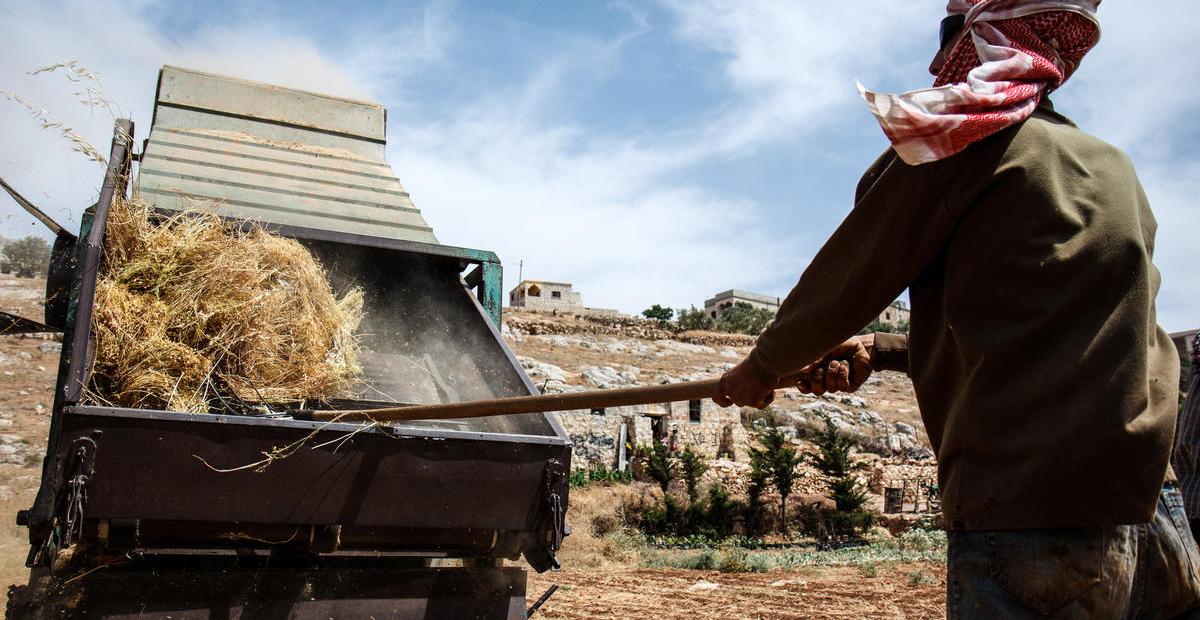Recurrent Monitoring Surveys
A compilation of resources developed by the REAL award

About RMS
Measuring resilience requires tools that can capture how individuals, households, and communities draw on resources and employ strategies to respond to shocks and stresses and how this affects their wellbeing trajectories in the short and long term. A key resilience measurement tool for capturing these dynamics is the recurrent monitoring survey (RMS).
Since its inception, the Resilience Evaluation, Analysis and Learning (REAL) Award has conducted multiple RMSs, as well as developed an RMS Practical Guidance Note and RMS Landscape Review report. This page compiles all of REAL’s RMS related resources.
The Resilience Recurrent Monitoring System (RMS): A Landscape Review
This literature review serves as the initial phase of an RMS technical consultation. It describes the current state of RMSs by summarizing the trends and characteristics observed by reviewing RMS reports and protocols, describes the value, challenges, solutions, and future opportunities of RMSs based on key informant interviews.
Resilience Measurement Practical Guidance Note: Recurrent Monitoring Surveys
The guidance note draws on examples from multiple country and project contexts of what worked well, what challenges emerged, and what solutions were developed while implementing an RMS. As such, this guidance note primarily focuses on measuring resilience at the individual, household, and community level where much of this work has been done to date.
Event: Insights into Implementing Recurrent Monitoring Surveys in USAID-funded Activities
This event explored the practical aspects of planning and implementing an RMS, featuring panelists from Mercy Corps and TANGO International with first-hand experience of completing an RMS. Panelists discussed considerations for setting up an RMS and lessons learned from using the findings for management decisions and learning.
Event: REAL Short Course in Resilience Measurement: Recurrent Monitoring Surveys
The webinar focused on the practical aspects of implementing an RMS and provided key lessons learned from three resilience-focused programs in Nepal, Ethiopia and Bangladesh. This webinar was the fourth session in the continuous REAL Short Course in Resilience Measurement.
Recurrent Monitoring Survey Reports
Partnership for Resilience and Economic Growth in Northern Kenya (PREG)
PREG II Recurrent Monitoring Survey (RMS-2) Results from Rounds 1, 2, and 3 - Summary of Findings
This brief documents the preliminary analyses of data from the first three rounds of the second cycle of the PREG II Recurrent Monitoring Survey (RMS). A more detailed analysis of interventions will follow RMS Round 4 data collection.
Partnership for Resilience and Economic Growth (PREG) Initiative in Northern Kenya II: Impact Evaluation Report of Recurrent Monitoring Survey 2019-2020
As part of the impact evaluation for the PREG II initiative, this report documents the analysis of data from the first year of the RMS in nine arid and semi-arid lands (ASAL) counties in Northern Kenya.
Resilience in the Sahel Enhanced (RISE)
RISE Program Impact Evaluation: Report of Recurrent Monitoring Survey
This report documents the analysis of the RMS 20I8-19 data set collected as part of the impact evaluation of the RISE program
Event: Strengthening Resilience in Niger and Burkina Faso: Results from the RISE I Recurrent Monitoring Surveys 2018-2019
In a joint webinar organized by REAL and the Sahel Collaboration & Communication Activity, panelists from TANGO International and USAID presented key findings from the RISE I RMS.
Somalia Resilience RMS Report
This report presents findings from a recurrent monitoring survey that was conducted during a time when Somalia was experiencing a severe drought. The report discusses several factors that helped household resilience during the drought, including informal social networks and access to information. It also lays out several programmatic recommendations for how resilience programming could be more effective, given the complex and shifting array of shocks to which Somalia is vulnerable.
Pastoralist Areas Resilience Improvement and Market Expansion (PRIME)
PRIME Project Impact Evaluation: Report of Recurrent Monitoring Survey 2 (RMS-2)
Halfway through the PRIME project implementation period, in 2015, Ethiopia was affected by what was considered the country’s worst drought in more than 50 years. The RMS-2 was launched in October 2015 to collect real-time data during the drought’s progression to provide key information for understanding household resilience dynamics.
An Overview of the Recurrent Monitoring Survey
Following on initial analysis of RMS data, this analysis seeks to undertake a deeper investigation to understand which resilience capacities enabled households to recover from the drought in order to provide future programming recommendations for the PRIME project.
Pastoralist Areas Resilience Improvement and Market Expansion (PRIME) Recurrent Monitoring Survey 2014-15 Deep Dive: Uncovering the Pathways to Resilience
Using baseline data (December 2013) and RMS data (collected monthly from Oct 2014-March 2015), the study examines which resilience capacities enabled households to recover from the 2014-15 drought in ways that could help inform future programming for the PRIME project.